Helping poor women gain access to the financial services they need to change their own lives can be challenging work. A recent visit to the Fonkoze branch in Sodo highlighted some of the obstacles that have to be faced.
Here is the front of the Sodo branch:

The most important action at a branch, whether in Sodo or in any of Fonkoze’s 32 branches, doesn’t happen at the branch office, but in credit centers that can be quite a distance from the branch.
A credit center is a collection of 25, 30, or 40 women. Often even more. They might meet in a local church or in a school, but they might just meet under a large tree. The women are organized into groups of five who take their loans and make their repayments together. The centers meet twice-a-month, once for reimbursement or disbursement of credit, and once for discussions. They also host Fonkoze’s education programs. Fonkoze might offer two or even three different educational programs simultaneously in a credit center, depending of that center’s needs.
Here are some pictures of the spot on Savann Long where one of Sodo’s larger credit centers meets. The members built the structure for themselves in one member’s front yard.
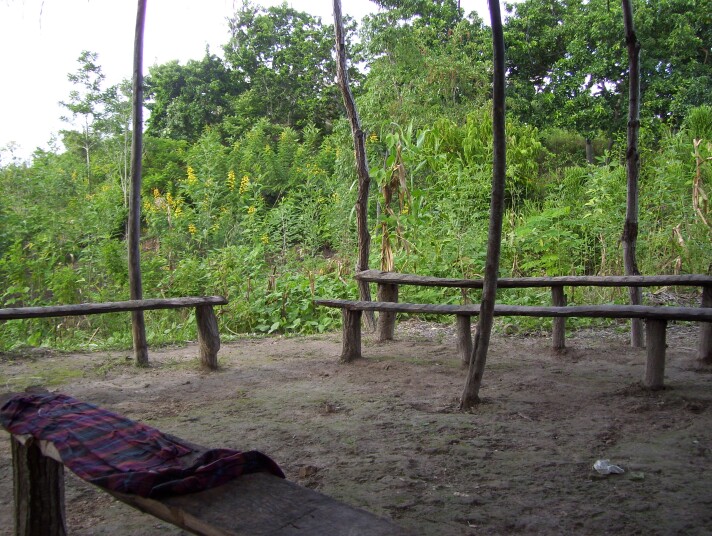
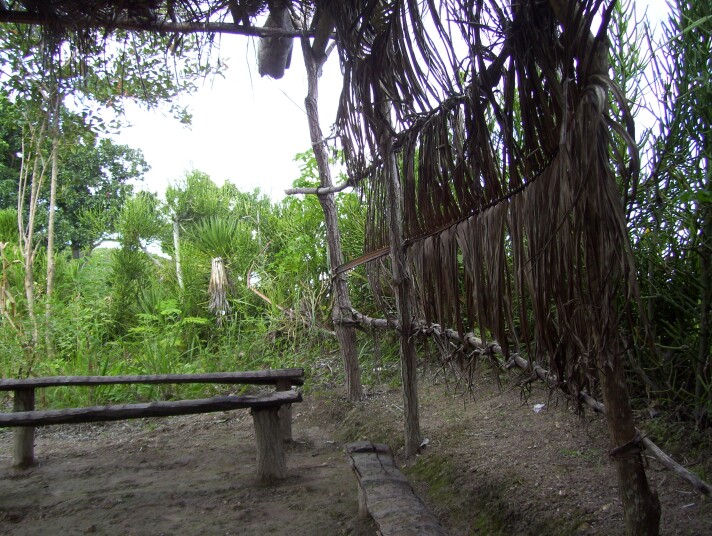
Now Haiti is roughly the same size as Maryland, so with 32 branches – 36 by the end of the year – you might think that credit centers would never be that far from a branch. In a sense you’d be right. They aren’t far. But their proximity doesn’t help you if the roads are bad enough.
And in the Sodo area they are bad enough. On Tuesday, we had to go to the center in Savann Long on horseback, over four hours each way, and on Wednesday we went to another center in Zoranje, a long hard motorcycle trip from Sodo.
One challenge was crossing the river that separates Sodo from most of the communities it serves.
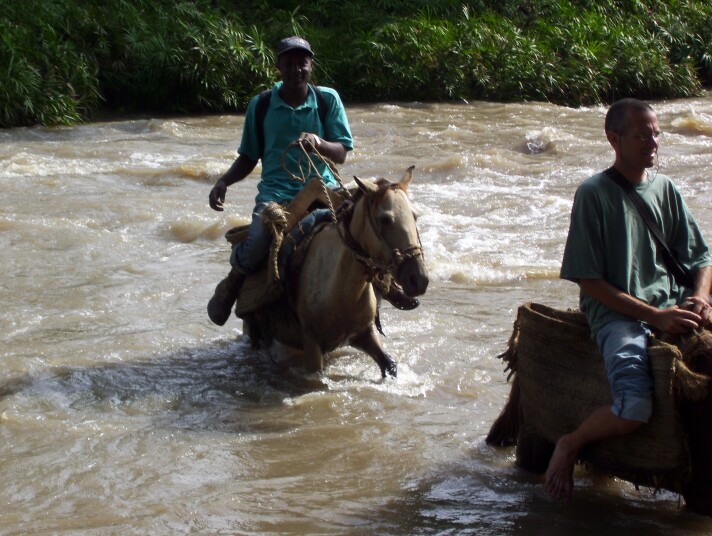
Crossing from Sodo was much easier than crossing back. On the way back, it was well past dark and raining hard. We had to gallop just to reach the river before it rose to high to cross.
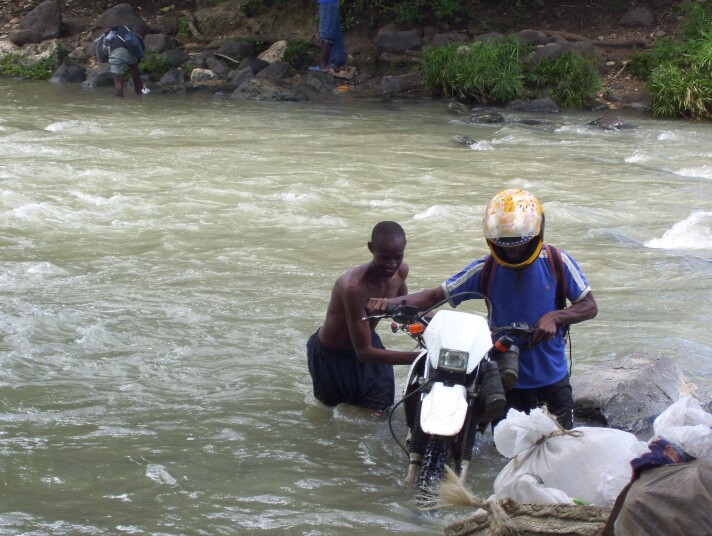
The man carrying this schoolgirl is a professional river forder. He charges about three Haitian gourds (less than ten cents) per child. He gets them across without their dirtying their uniforms.
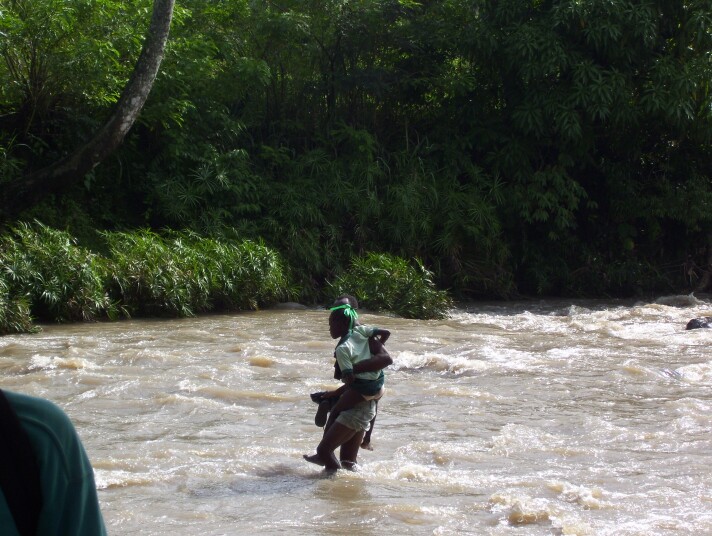
The river isn’t the only barrier. The roads just aren’t good.
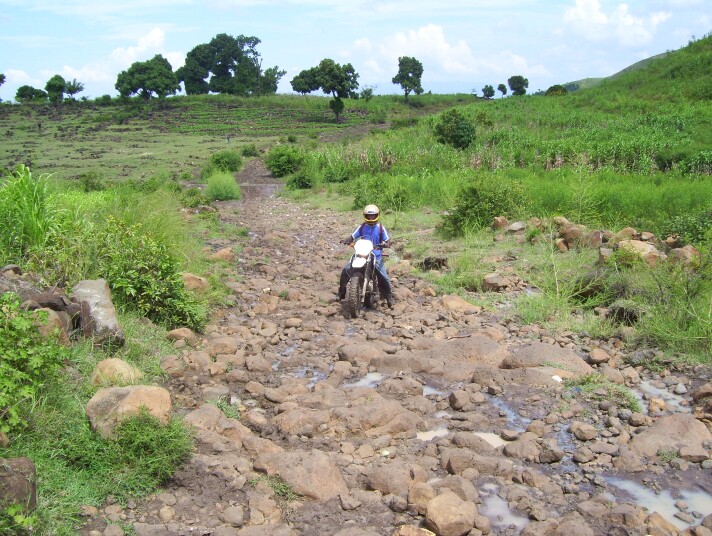
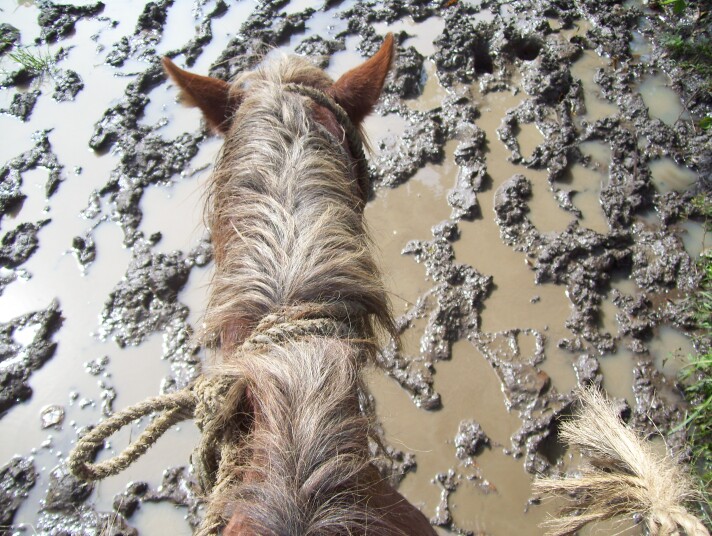
We passed a local market on the way.
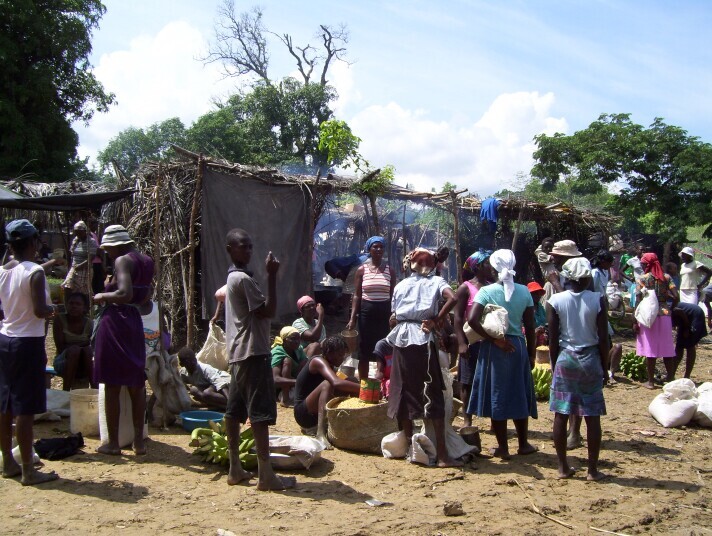
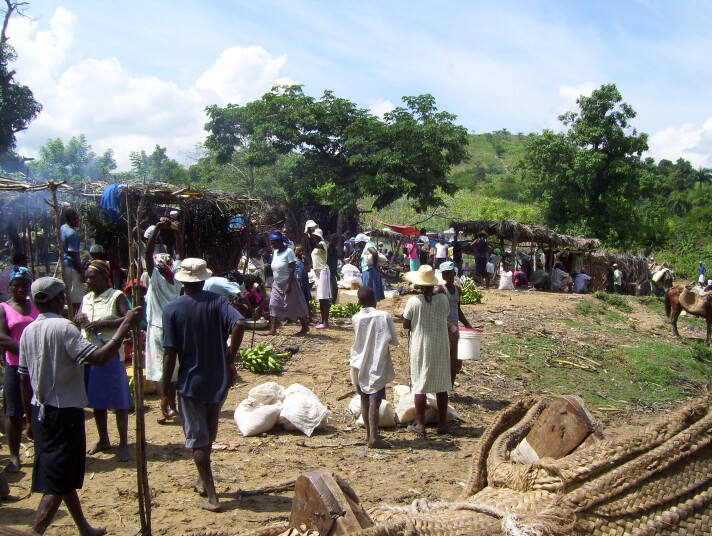
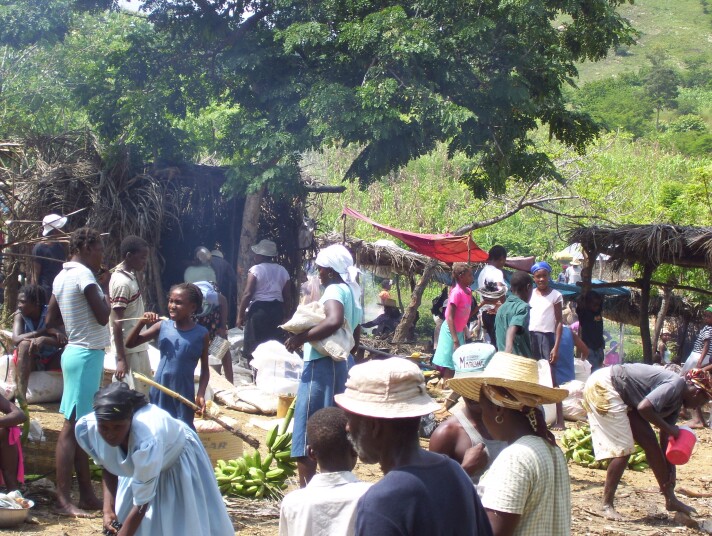
Logistical aspects of Fonkoze’s work, like transportation, present only one small piece of the overall challenge. I hope to write more about other pieces soon. But for two hard days in Sodo, transportation seemed like enough of a challenge to me.